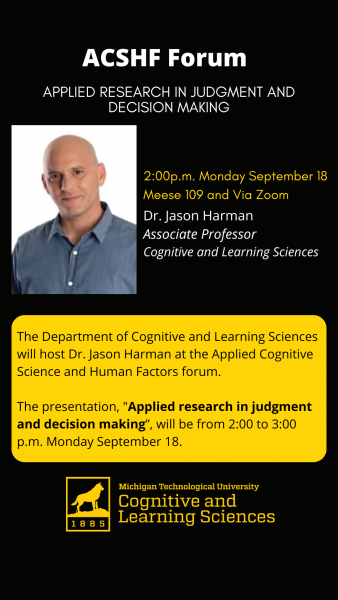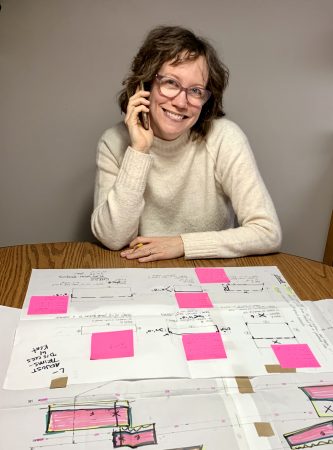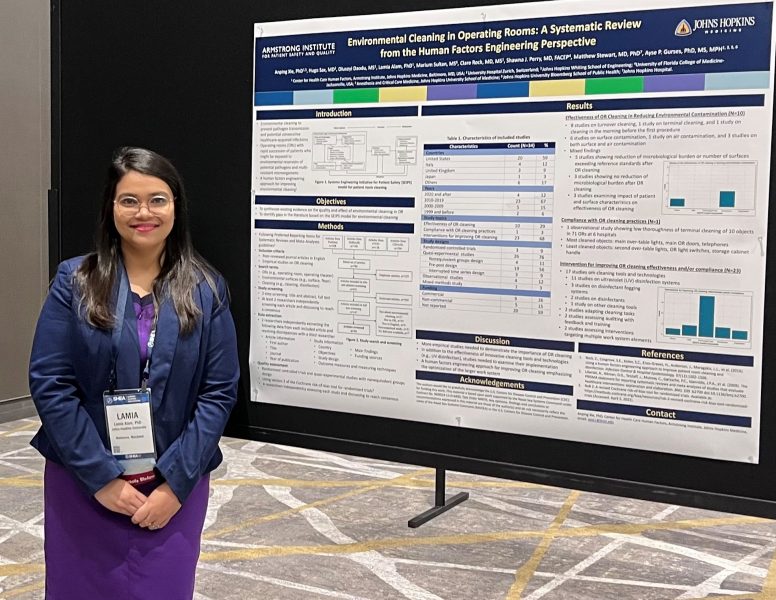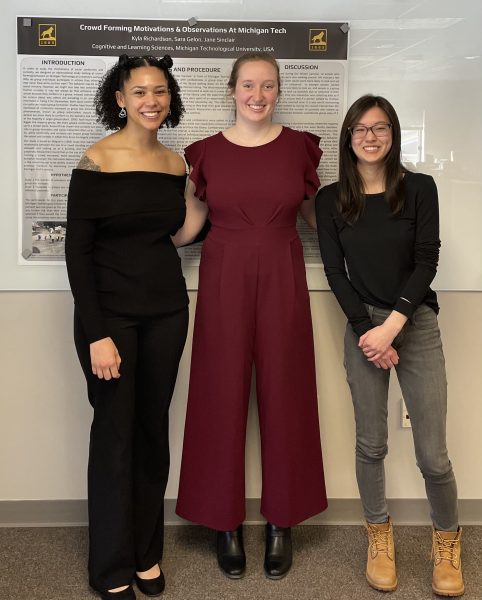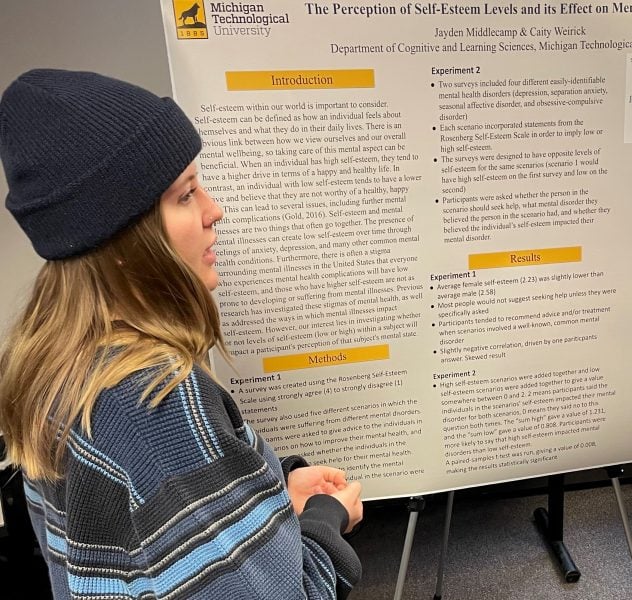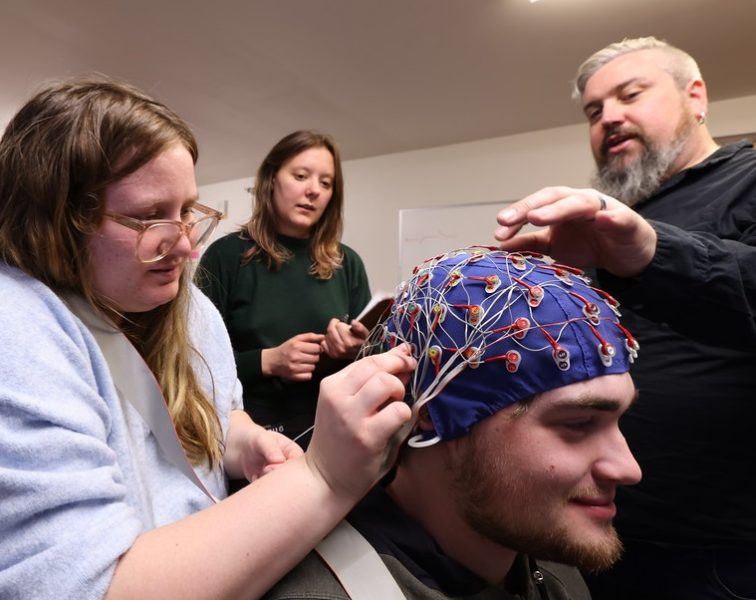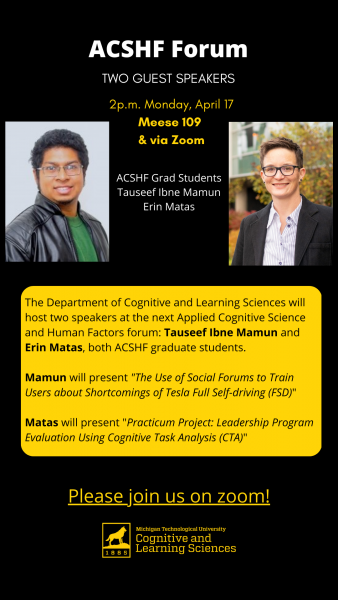The Department of Cognitive and Learning Sciences will host Dr. Jason Harman at the next Applied Cognitive Science and Human Factors forum.
The presentation, “Applied research in judgment and decision making”, will be from 2:00 to 3:00 p.m. Monday September 18 in Meese 109 & via Zoom.
Abstract:
In this talk Jason will review multiple ongoing projects that apply insights and methods from judgment and decision making to real world domains. These include modeling driver decision making, gamification to improve organizational and health outcomes, human-machine teaming in map generation, and using heuristics to improve the state of the art in AI/ML.
